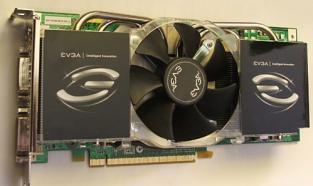OOPS! You forgot to upload swfobject.js ! You must upload this file for your form to work.
AMD AGESA v1.0.0.6 update will support memory up to DDR4-4000
![]()
|
xtreview is your : Video card - cpu - memory - Hard drive - power supply unit source |
|
|||
|
|
||||
 Recommended : Free unlimited image hosting with image editor
Recommended : Free unlimited image hosting with image editor
|
POSTER: computer news || AMD AGESA V1.0.0.6 UPDATE WILL SUPPORT MEMORY UP TO DDR4-4000 |
DATE:2017-05-26 |
|
|
AMD Company is determined to submit the AGESA version v1.0.0.6 package before the end of the month. The AGESA or AMD Generic Encapsulated System Architecture package is a microcode for the initial initialization of AMD Ryzen processors, which motherboard manufacturers insert into proprietary BIOS versions. At the moment the BIOS of most cards with Ryzen support use AGESA version 1.0.0.4. Version v1.0.0.6 is in active testing mode, but it is already available for Gigabyte GA-AX370-Gaming5 and ASUS Crosshair VI boards. The official distribution of the v1.0.0.6 package will begin just the other day, although the modified BIOS versions for the motherboards will be delayed until the middle or the end of June. The main innovation in AGESA version v1.0.0.6 will be support for changed memory modes. This is done to improve memory overclocking and for its stable operation in modes that are not provided by the JEDEC DDR4 standard. A total of 26 important changes were made. Most of them relate to specific memory timings. Details on this can be found on AMD diary page. The most significant point was the support of memory up to DDR-4000 with a step of 133 MHz, starting with the standard DDR4-2667. Naturally, not all memory can work at this frequency, which AMD immediately warns. In addition to changes in the operation of memory, which, incidentally, can now turn off the power after a certain period of inactivity, AGESA v1.0.0.6 supports PCI Express Access Control Services (ACS). ACS support allows you to manually distribute the resources of the graphics subsystem of the PC, for example, if the system has two video cards - discrete and integrated, between different virtual machines under Windows or Linux. | ||
|
|
||
|
xtreview is your : Video card - cpu - memory - Hard drive - power supply unit source |
|
|
|
|
||
|
Xtreview Support  N-Post:xxxx Xtreview Support        |
AMD AGESA V1.0.0.6 UPDATE WILL SUPPORT MEMORY UP TO DDR4-4000 |
| Please Feel Free to write any Comment; Thanks  |
The Japanese representation of AMD offered monetary compensation to the first buyers of Ryzen Threadripper (2017-09-08)
AMD itself would like to believe that mobile processors Ryzen have already been released (2017-09-08)
AMD Vega 20 will find application in accelerating computations (2017-09-08)
AMD Bristol Ridge processors are also available in American retail (2017-09-07)
Advertising Radeon RX 570 for 279 dollars AMD caused a storm of emotions (2017-09-07)
AMD gave details about the history of the Ryzen Threadripper (2017-09-06)
AMD processors with Zen architecture of the second generation will raise frequencies and specific performance (2017-09-05)
On the Germans, AMD Ryzen Threadripper processors produced a predominantly positive impression (2017-09-04)
Video card manufacturers are preparing for the September deficit AMD Radeon RX Vega (2017-08-26)
More recent AMD Ryzen processors do not annoy Linux users with problems (2017-08-26)
Updated chipset drivers for AMD Ryzen and Ryzen Threadripper processors (2017-08-26)
We are looking at Noctua coolers for AMD Ryzen Threadripper (2017-08-25)
AMD again fantasized about the monolithic crystal processors EPYC (2017-08-24)
Japanese shops rushed to reduce prices for AMD processors Ryzen Threadripper (2017-08-24)
AMD promises to do everything possible to return prices for Radeon RX Vega to the recommended level (2017-08-23)
AMD continues to demonstrate the capabilities of its processors using NVIDIA graphics cards (2017-08-23)
These days AMD can tell about the Vega successor (2017-08-22)
Analysts believe that the new processors from Intel and AMD will revive the PC market in the second half of the year (2017-08-22)
AMD is ready to deal with the deficit of Radeon RX Vega 64 (2017-08-19)
The packaging of AMD Vega 10 graphics processors is handled by two different contractors (2017-08-17)
![]()
To figure out your best laptops .Welcome to XTreview.com. Here u can find a complete computer hardware guide and laptop rating .More than 500 reviews of modern PC to understand the basic architecture


7600gt review
7600gt is the middle card range.
We already benchmarked this video card and found that ...

 geforce 8800gtx and 8800gts
geforce 8800gtx and 8800gts  Xtreview software download Section
Xtreview software download Section  AMD TURION 64 X2 REVIEW
AMD TURION 64 X2 REVIEW  INTEL PENTIUM D 920 , INTEL PENTIUM D 930
INTEL PENTIUM D 920 , INTEL PENTIUM D 930  6800XT REVIEW
6800XT REVIEW  computer hardware REVIEW
computer hardware REVIEW  INTEL CONROE CORE DUO 2 REVIEW VS AMD AM2
INTEL CONROE CORE DUO 2 REVIEW VS AMD AM2  INTEL PENTIUM D 805 INTEL D805
INTEL PENTIUM D 805 INTEL D805  Free desktop wallpaper
Free desktop wallpaper  online fighting game
online fighting game  Xtreview price comparison center
Xtreview price comparison center Lastest 15 Reviews


Rss Feeds
Last News
- The new version of GPU-Z finally kills the belief in the miracle of Vega transformation
- The motherboard manufacturer confirms the characteristics of the processors Coffee Lake
- We are looking for copper coolers on NVIDIA Volta computing accelerators
- Unofficially about Intels plans to release 300-series chipset
- The Japanese representation of AMD offered monetary compensation to the first buyers of Ryzen Threadripper
- This year will not be released more than 45 million motherboards
- TSMC denies the presentation of charges from the antimonopoly authorities
- Radeon RX Vega 64 at frequencies 1802-1000 MHz updated the record GPUPI 1B
- AMD itself would like to believe that mobile processors Ryzen have already been released
- AMD Vega 20 will find application in accelerating computations
- Pre-orders for new iPhone start next week
- Radeon RX Vega 57, 58 and 59: the wonders of transformation
- ASML starts commercial delivery of EUV-scanners
- The older Skylake processors with a free multiplier are removed from production
- Meizu will release Android-smartphone based on Helio P40
- AMD Bristol Ridge processors are also available in American retail
- The fate of Toshiba Memory can be solved to the next environment
- duo GeForce GTX 1080 Ti in GPUPI 1B at frequencies of 2480-10320 MHz
- New Kentsfield overclocking record up to 5204 MHz
- Lenovo released Android-smartphone K8

HALO 3 HALO 3 - Final Fight!

PREY Prey is something you don t often see anymore: a totally unigue shooter experience.

computer news computer parts review Old Forum Downloads New Forum Login Join Articles terms Hardware blog Sitemap Get Freebies


